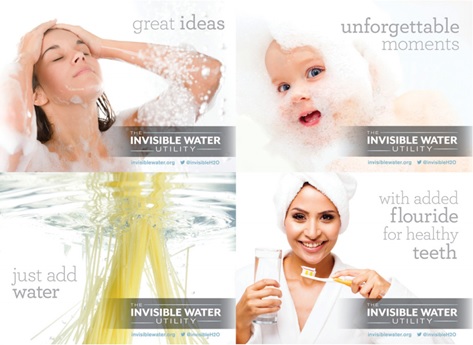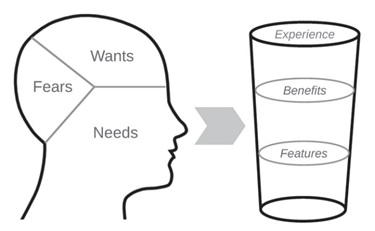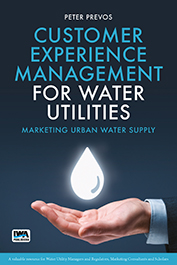Crafting Value Propositions for Water Utilities
By Dr Peter Prevos, author of Customer Experience Management for Water Utilities
Thinking about the value water often leads to a foregone conclusion. Water is of infinite value because we need water, just like we need air and food, to stay alive. This biological perspective is, however, a simplistic view as we only need a relatively small amount to sustain life, anything beyond this small amount is discretionary consumption.
We can expand the biological perspective, which many publications about water promote, by looking at the social science of marketing. Many people view marketing in a negative light given ubiquitous nature of advertising on every possible communication channel. Contemporary views of marketing do, however, go beyond gimmicks to maximise sales. Contemporary marketing theory describes the process of creating value for consumers and society overall (see part one of this series).
A fundamental truth in marketing is that the customer is always right. Although customers might be wrong about the facts, they are always right about how they feel about the service. Concerning tap water, this means that although the customer might be factually wrong regarding the fact that the tap water is safe to drink, their views on its aesthetics cannot be disputed.
This perspective implies that the value of water always needs to be defined from the consumer’s point of view, which relates to the benefits they derive from consuming the water. Water utility professionals often describe water in cubic meters, milligrams per litre and other numerical parameters. Customers define the value of water through the social benefits they obtain from using the water. The value of the service does not reside within the water, it does not reside within its purity and its pressure, but is uniquely defined by how the consumer uses it in their lives. The daily morning shower is not necessary to maintain hygiene but acts as a private ritual to transform the private self into the public self, and it is a time of quiet contemplation. Another example is gardening, an ultimate form of self-expression that is not possible without water. Water is thus not only necessary to survive, but it also shapes our social lives.

Communicating the value of tap water (Figure 5.7, Prevos, 2018)
The benefits of water need to be contrasted with the cost of water. The traditional economic view of the cost of water is limited it its price, its monetary cost. Also, the cost side of the value equation needs to be enhanced. Most importantly, consumers pay a time cost for using a service. In the case of tap water, the time cost of consuming water is the same as the time it takes to use the water and the time it takes to pay the bill. However, when service fails, and consumers need to contact their utility, have to boil the water or seek alternative water sources themselves, the time cost of water increases dramatically. Besides time cost, customers can also incur a psychological cost when they experience a level of service that warrants lodging a complaint. The effort of picking up the phone and lodging a complaint is not only costly in time for the consumer but can also be very frustrating.
Utilities need to ensure that the water is safe to drink and available when they need it so that consumers can maximise the value they create with the service. Maximising consumer value also requires that the non-monetary cost of water be reduced to as close to zero as possible. Being a water utility customer should be free of time wasting activities and frustration. This view of the value of water helps water utility professionals to develop a more meaningful understanding of their day-to-day activities as it presents a truly customer-centric view of what a water utility provides to society.

Value proposition model for water utilities (Figure 3.2, Prevos, 2018)
This article considers themes from chapter three of Customer Experience Management for Water Utilities (© 2018 IWA Publishing). This book explains the marketing view of the value of water in great detail. It delves into the theory of value-creation but also provides a practical method to develop value propositions. This template can be used by water utilities to guide discussions about the value proposition. If you like to know more about how to apply marketing theory to your work, consider purchasing Customer Experience Management for Water Utilities from IWA Publishing.
